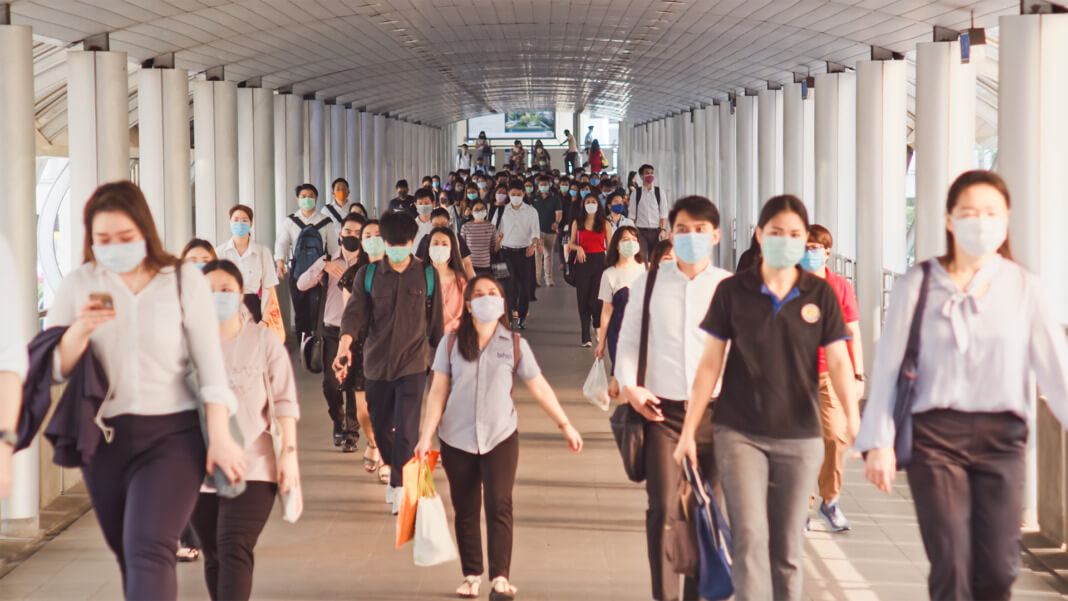The fundamental message from world leaders at the World Economic Forum’s virtual Jobs Reset Summit 2021 earlier this June was that an inclusive economic recovery begins with growth, jobs, skills, and equity.
Pandemics have been a crucial driver of massive societal transformation in the past, as history has shown. It will not only have a social and political impact on people all over the world, but it will also change the way economies work and affect nations as a whole.
The influence of Covid-19
Even though most of the world has been experiencing economic and financial difficulties, it has had a particularly devastating impact on vulnerable and marginalized populations. While inequality and inequity have always existed, the pandemic has highlighted and exacerbated them.
This is especially true in growing economies like Southeast Asia (SEA), where financial and physical constraints worsened limited access to basic essentials. As a result, countries must urgently reduce and eradicate inequalities and inequities by implementing strategies such as providing safety nets, social protection, and inclusive work opportunities.
These communities will have a better chance of thriving and contributing to future economic progress if they have more social mobility and wealth creation chances.
The recovery of the economy is dependent on the availability of jobs. Many countries in the region continue to struggle to drive economic growth by relying on a workforce obliged to labor under restrictive and challenging conditions.
Unfortunately, the epidemic has had a significant impact on many workers and businesses, as inter- and cross-border mobility restrictions have hampered their ability to conduct business as usual.
This, of course, has a detrimental influence on many people’s rice bowls, particularly low-wage, low-skilled, and gig-economy employees, as if the danger of automation and future technologies wasn’t enough.
Countries frequently focus on boosting the labor productivity of their workforce to achieve growth, such as through job retention, job creation, and future-proofing the talent pool.
With the pandemic’s destructive effects, these, together with commercial and public sector support such as subsidies and worker upskilling, will become even more critical in the coming years.
Collaboration between the public and private sectors
The key to Asia’s quick economic recovery is how the public and private sectors interact closely and exploit the region’s well-established digital ecosystems.
Digital sectors such as fintech, digital banking, and e-commerce are growing rapidly and promisingly in many ASEAN economies.
In light of this, we must recognize the critical role these enterprises play and their enormous impact on these economies and work to encourage their expansion.
Could startups be the digital economy’s dark horse?
Many leaders think that accelerated digital transformation is critical for rapid economic recovery in the APAC region, responding to and adapting to the pandemic with digital innovation.
Startups are an essential part of the digital economy because their nature is to create and disrupt, which they typically do use digital methods. They also frequently necessitate a highly competent and digitally savvy talent pool.
However, challenges obtaining adequate money, appropriate people, and institutional backing to support their potential to scale up are some of the most significant hurdles to startup success. Without appropriate scaling, these companies’ growth will be hampered, affecting job availability.
Strong leadership is required for economic revival
This is where Big Tech and the government can help lead and catalyze the digital ecosystem’s growth. Because Big Tech has the infrastructure, financial capacity, digital skills, and experience to weather a pandemic, these advantages may be given to startups and SMEs to assist them in recovering fast.
This is especially critical since Big Tech must be aware of the enormous profit gap that existed before the outbreak. This duality of forces, when combined with smart, supportive, and progressive policies from the public sector, will be able to propel startups and SMEs not only to survive but grow.
More jobs will be created, the talent pool will be future-proofed with digital skills, and digital economies will develop. In this hyper-digitalized, post-pandemic era, thriving digital economies will ultimately be vital to a nation’s and region’s economic recovery and long-term development.





